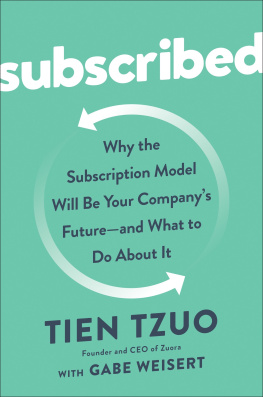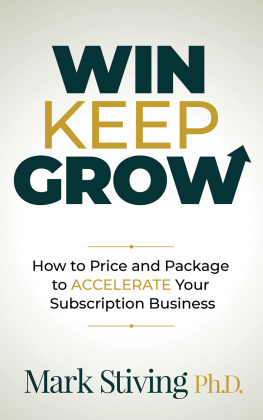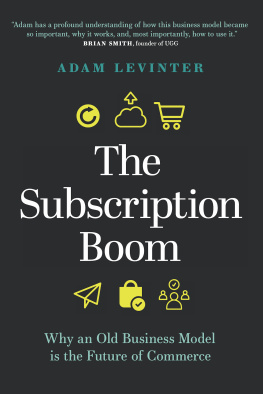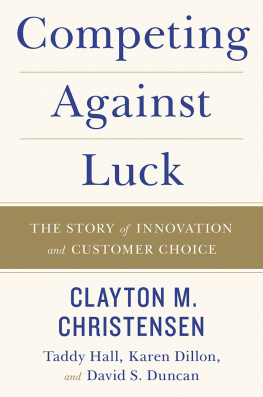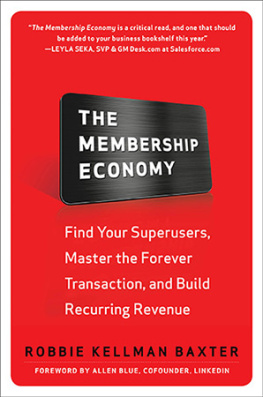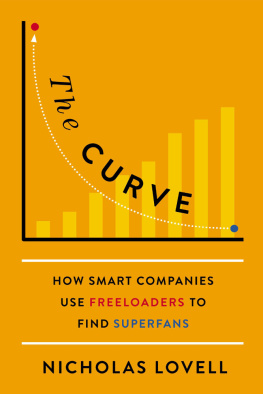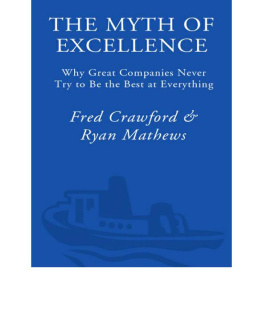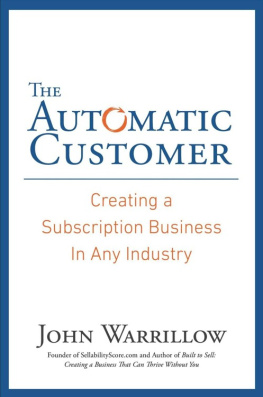Tien Tzuo - Subscribed: Why the Subscription Model Will Be Your Company’s Future - and What to Do About It
Here you can read online Tien Tzuo - Subscribed: Why the Subscription Model Will Be Your Company’s Future - and What to Do About It full text of the book (entire story) in english for free. Download pdf and epub, get meaning, cover and reviews about this ebook. year: 2018, publisher: Portfolio, genre: Business. Description of the work, (preface) as well as reviews are available. Best literature library LitArk.com created for fans of good reading and offers a wide selection of genres:
Romance novel
Science fiction
Adventure
Detective
Science
History
Home and family
Prose
Art
Politics
Computer
Non-fiction
Religion
Business
Children
Humor
Choose a favorite category and find really read worthwhile books. Enjoy immersion in the world of imagination, feel the emotions of the characters or learn something new for yourself, make an fascinating discovery.
- Book:Subscribed: Why the Subscription Model Will Be Your Company’s Future - and What to Do About It
- Author:
- Publisher:Portfolio
- Genre:
- Year:2018
- Rating:5 / 5
- Favourites:Add to favourites
- Your mark:
Subscribed: Why the Subscription Model Will Be Your Company’s Future - and What to Do About It: summary, description and annotation
We offer to read an annotation, description, summary or preface (depends on what the author of the book "Subscribed: Why the Subscription Model Will Be Your Company’s Future - and What to Do About It" wrote himself). If you haven't found the necessary information about the book — write in the comments, we will try to find it.
Subscription companies are growing nine times faster than the S&P 500. Why? Because unlike product companies, subscription companies know their customers. A happy subscriber base is the ultimate economic moat.
Todays consumers prefer the advantages of access over the hassles of maintenance, from transportation (Uber, Surf Air), to clothing (Stitch Fix, Eleven James), to razor blades and makeup (Dollar Shave Club, Birchbox). Companies are similarly demanding easier, long-term solutions, trading their server rooms for cloud storage solutions like Box. Simply put, the world is shifting from products to services.
But how do you turn customers into subscribers? As the CEO of the worlds largest subscription management platform, Tien Tzuo has helped hundreds of companies transition from relying on individual sales to building customer-centric, recurring-revenue businesses. His core message in Subscribed is simple: Ready or not, excited or terrified, you need to adapt to the Subscription Economy -- or risk being left behind.
Tzuo shows how to use subscriptions to build lucrative, ongoing one-on-one relationships with your customers. This may require reinventing substantial parts of your company, from your accounting practices to your entire IT architecture, but the payoff can be enormous. Just look at the case studies:
* Adobe transitions from selling enterprise software licenses to offering cloud-based solutions for a flat monthly fee, and quadruples its valuation.
* Fender evolves from selling guitars one at a time to creating lifelong musicians by teaching beginners to play, and keeping them inspired for life.
* Caterpillar uses subscriptions to help solve problems -- its not about how many tractors you can rent, but how much dirt you need to move.
In Subscribed, youll learn how these companies made the shift, and how you can transform your own product into a valuable service with a practical, step-by-step framework. Find out how how you can prepare and prosper now, rather than trying to catch up later.
Tien Tzuo: author's other books
Who wrote Subscribed: Why the Subscription Model Will Be Your Company’s Future - and What to Do About It? Find out the surname, the name of the author of the book and a list of all author's works by series.

